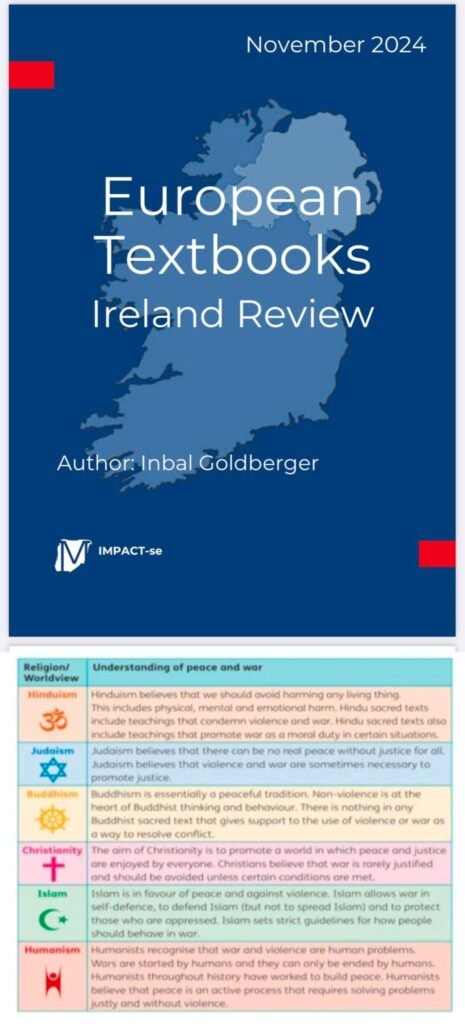People are questioning Israel’s closure of its embassy in Ireland. There are many reasons for the decision can be explained from political to academic perspective.
But the catalyst for the move was a report last month on the content of state approved Irish textbooks that found teaching of antisemitism as the report from NGO IMPACT se found in one of its study last month.
The 40-page Impact-se report examined numerous Irish textbooks designed for students aged 12 to 16.
In “Call to Action”, a civics textbook from Gill Education, students are presented with various activities focused on the Palestinian perspective. The book features climate activist Greta Thunberg on its cover and includes exercises asking students to consider potential futures for Palestinian children.
Another text, Inspire – Wisdom of the World, published by Educate.ie, claims Jesus was born in a country called “Palestine.” The book states, “Today this area, between the River Jordan and the Mediterranean Sea, is also known as the Holy Land.” Impact-se noted that “Historical references to Jesus living in ‘Palestine’ without appropriate context can contribute to narratives that challenge Israel’s legitimacy and undermine the Jewish historical connection to the land.”
The same book presents religions differently, stating “Judaism believes that violence and war are sometimes necessary to promote justice,” while describing Islam as “in favor of peace and against violence,” and Christianity’s aim as “to promote a world in which peace and justice and enjoyed by everyone.”
In Veritas’ “Grow in Love”, a 2019 edition depicted people who “do not like Jesus” wearing a tallit (Jewish prayer shawl). Following criticism, Veritas updated the textbook in 2024, removing the tallit image. In another Veritas publication, “Faith Seeking Understanding, Christianity: Origins and Contemporary Expressions”, the parable of the Good Samaritan is illustrated with an image of a boy wearing a Palestinian scarf protesting Israel.
Marcus Sheff, Impact-se chief executive in his remarks said: “As our report makes clear, there is content in Irish textbooks that is deeply concerning. When aspects of the Holocaust are minimised and when Judaism is portrayed as being less peaceful than other great religions, it should raise a clear red flag for the Irish authorities. The good news is that where there is willing, these issues can be tackled and rectified. We hope that both textbook publishers and members of the Irish government will be open to making much-needed changes.”

